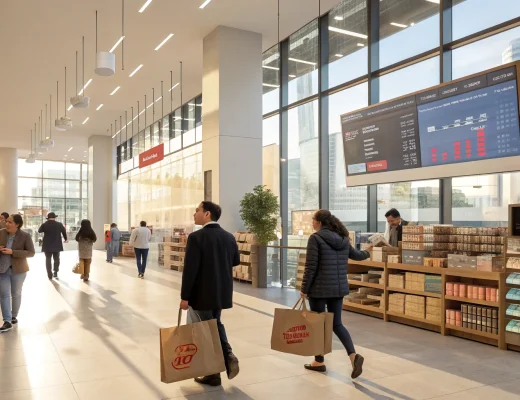On 5 September 2023, United Nations teams are actively present in 162 nations and territories across the globe, working together on joint projects and addressing a variety of complex priorities and essential initiatives daily. These initiatives cover climate change, food security, gender equality, civilian safety, and more.
United Nations Teams Tackling Global Issues in 162 Nations
To better serve the communities, UN Resident Coordinators and their teams employ innovative problem-solving methods, and several examples of their recent work showcase the breadth and scope of their endeavors.
Liberia: Spotlight Initiative and Addressing Gender-Based Violence
In Liberia, the UN team focuses on implementing the Spotlight Initiative, utilizing technology to empower
rural women and girls, as well as raise awareness about gender-based violence. This programming intends to promote gender equality and offer resources to those who have faced the challenges of inequality and violence firsthand.
Nepal: Strengthening Climate-Resilient Agriculture
Meanwhile, in Nepal, a mix of digital tools and community-level engagements has been instituted to support climate-resilient agriculture, enabling local farmers to
optimize their farming methods, ultimately enhancing food security for the nation. By embracing technology and innovative practices, Nepal’s agricultural community can better address the significant global challenge of climate change.
Liberia: Combating Food Insecurity with Sustainable Farming Techniques
In Liberia, the UN team is ramping up its support for national initiatives to combat food insecurity, in response to a recent Food and Agriculture Organization (FAO) report showing that over half a million Liberians face acute food insecurity. From June to August this year, 21,500 individuals reportedly experienced critical food insecurity levels.
The UN’s increased support includes providing crucial resources, as well as implementing sustainable farming techniques aimed at improving crop yields and empowering local farming communities. Additionally, the
UN is collaborating with the Liberian government and other agencies to develop long-term strategies that address the various factors contributing to food insecurity in the region.
Training Small-Scale Farmers in Environmentally Sound Agricultural Practices
Under the leadership of Christine Umutoni, the UN team has trained nearly 2,700 small-scale farmers in environmentally sound agricultural techniques over the past six months. Additionally, they have supplied seed funding, assets, and resources like water pumps and enhanced rice and vegetable seeds to rural populations.
This program aims to significantly improve food security and promote sustainable agricultural practices in vulnerable communities. By providing farmers with the knowledge and tools necessary to successfully adapt to climate change, the UN team hopes to ensure a stable and self-sufficient future for these rural populations.
World Food Programme and Liberia’s Ministry of Education Collaborate to Provide School Meals
Moreover, the World Food Programme (WFP), working alongside Liberia’s Ministry of Education, is providing more than 42,000 students with meals at school, using locally-produced food. This initiative not only aims to improve the students’ nutrition levels but also supports local farmers by creating a stable demand for their produce.
As a result, this collaboration fosters a self-reliant and sustainable framework benefiting both the educational system and the agricultural sector in Liberia.
Aiding the Achievement of Sustainable Development Objectives in Liberia
Through these efforts, the UN agencies aim to aid Liberia in accomplishing its sustainable
development objectives and enhancing the well-being of its people. Additionally, they strive to address various social, economic, and environmental challenges that the country faces, thereby fostering a resilient and inclusive society.
By working in collaboration with the Liberian government and local partners, the UN agencies ultimately hope to contribute to a brighter future for the nation and its citizens.
From combating gender-based violence and promoting climate-resilient agriculture in Liberia and Nepal, UN teams globally are making strides toward addressing critical social, economic, and environmental challenges worldwide. Their innovative approaches to problem-solving serve as a testament to the importance of collaboration among UN agencies, local governments, and global partners.
As progress continues and sustainable development goals become increasingly attainable, these united efforts present a promising future for current and future generations across the globe.
FAQ
How many nations and territories do United Nations teams work in?
As of 5 September 2023, United Nations teams are actively present in 162 nations and territories across the globe.
What are some examples of initiatives that UN teams work on?
Some examples of initiatives covered by UN teams include climate change, food security, gender equality, and civilian safety.
What is the Spotlight Initiative in Liberia?
The Spotlight Initiative in Liberia is a program that utilizes technology to empower rural women and girls, raise awareness about gender-based violence, promote gender equality, and offer resources to those affected by inequality and violence.
What is being done in Nepal to strengthen climate-resilient agriculture?
In Nepal, a mix of digital tools and community-level engagements has been instituted to support climate-resilient agriculture, enabling local farmers to optimize their farming methods and enhance food security for the nation.
How is the UN team in Liberia addressing food insecurity?
The UN team in Liberia is providing crucial resources and implementing sustainable farming techniques to improve crop yields, empower local farming communities, and collaborate with the Liberian government and other agencies to develop long-term strategies for addressing food insecurity in the region.
What are some achievements of the UN team’s training program for small-scale farmers in Liberia?
Under the leadership of Christine Umutoni, the UN team has trained nearly 2,700 small-scale farmers in environmentally sound agricultural techniques over the past six months and supplied seed funding, assets, and resources like water pumps and enhanced rice and vegetable seeds to rural populations.
How is the World Food Programme collaborating with Liberia’s Ministry of Education to provide school meals?
The World Food Programme, working alongside Liberia’s Ministry of Education, is providing more than 42,000 students with meals at school using locally-produced food. This initiative supports local farmers by creating a stable demand for their produce while improving students’ nutrition levels.
What are the goals of the UN agencies in aiding Liberia’s sustainable development objectives?
The UN agencies aim to help Liberia accomplish its sustainable development objectives and enhance the well-being of its people by addressing social, economic, and environmental challenges and fostering a resilient and inclusive society in collaboration with the Liberian government and local partners.
First Reported on: un.org
Featured Image Credit: Photo by Brett Sayles; Pexels; Thank you!







